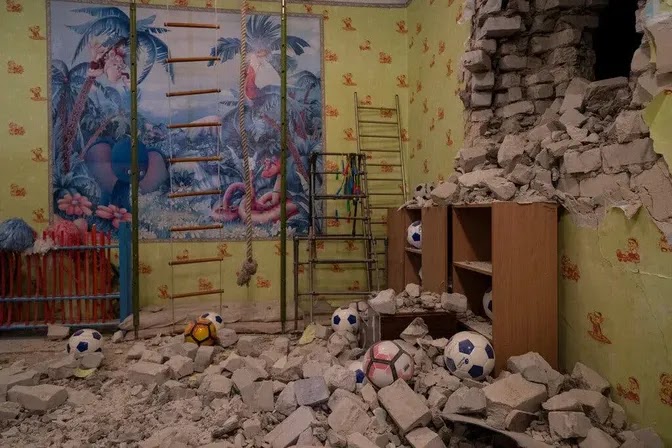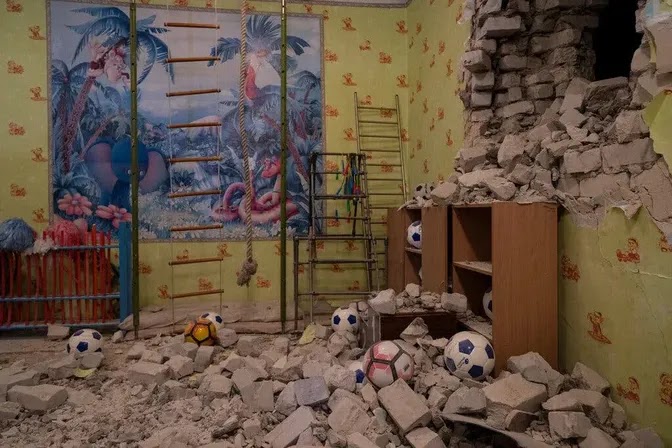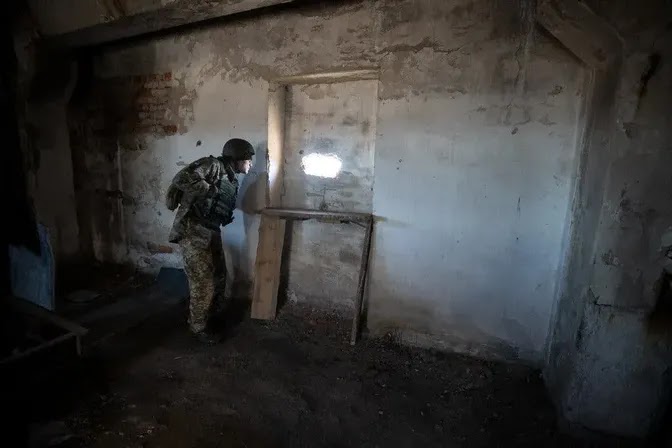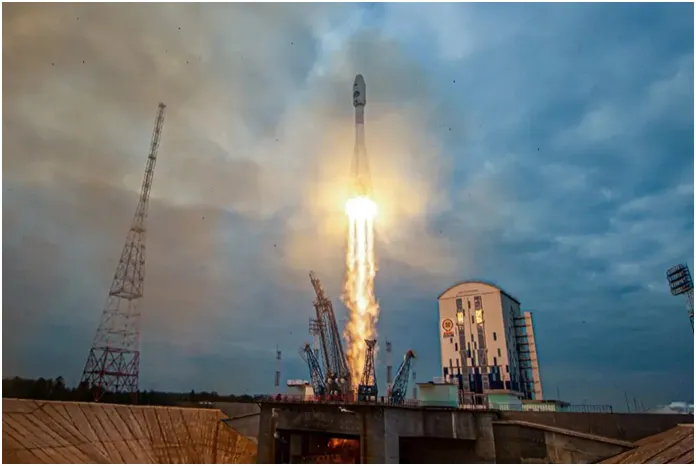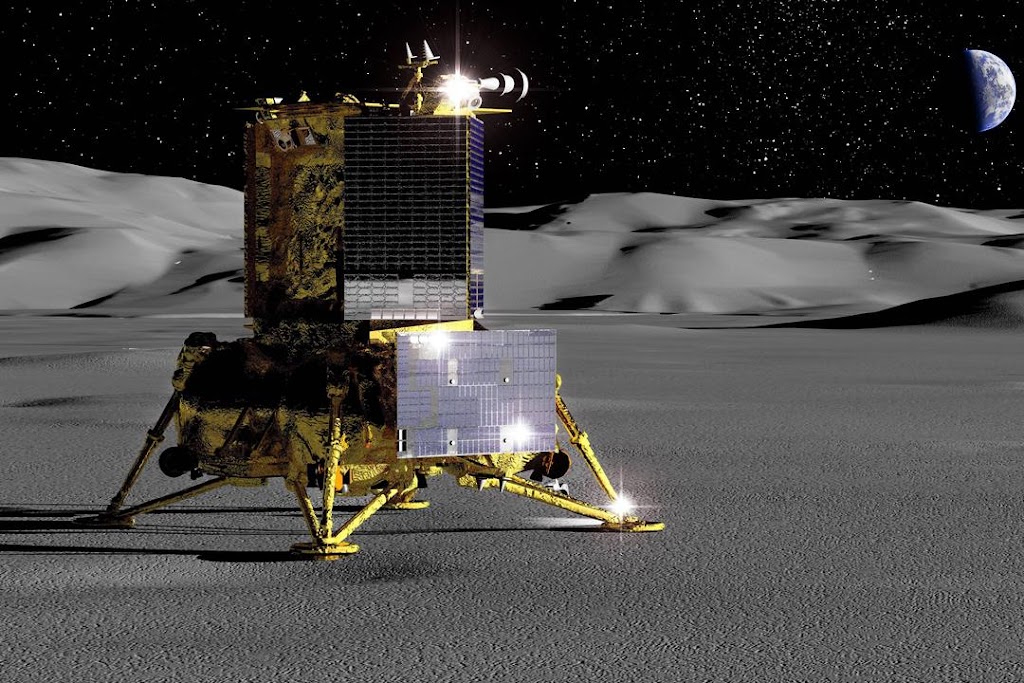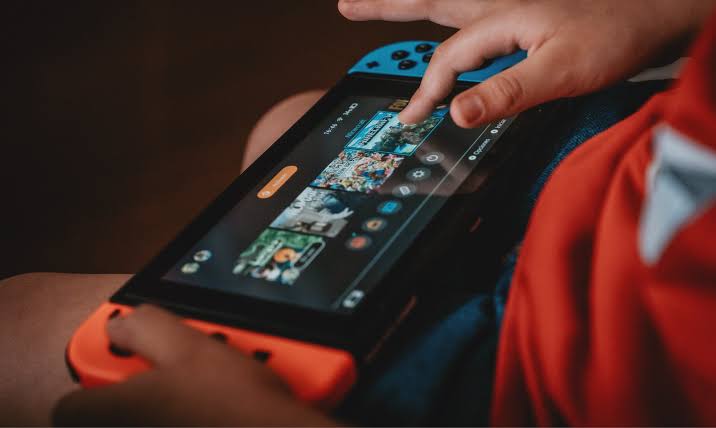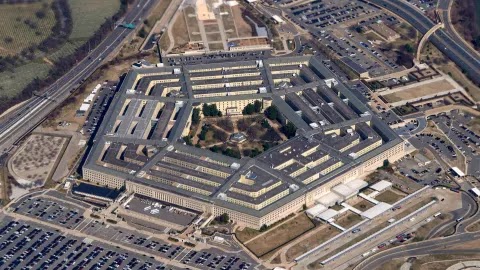Contrasting Picture In The Capital Of Ukraine
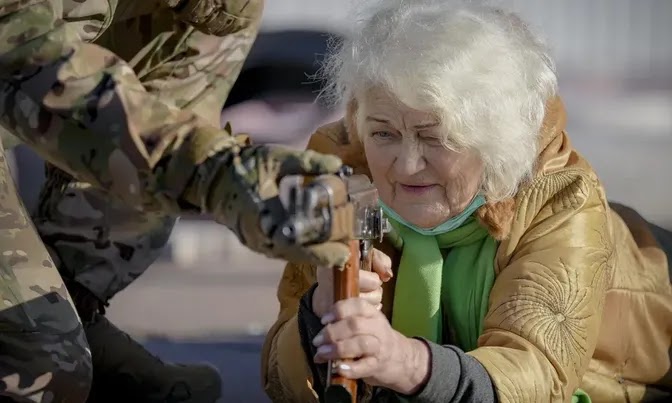
“I decided the time to change was now,” he said, sipping a cup of coffee in central Kiev, where shops are still crowded with shoppers. “I need to know how to shoot a gun. It’s a useful skill.”
On February 18, US President Joe Biden said that Russia had decided to launch a “catastrophic” war, but he stressed last-minute diplomacy could still offer some hope.
Against this backdrop, Ukraine’s capital seems to be stuck between normalcy and horror, following a warning from the White House leader that it could be the target of a “catastrophic” attack by Ukraine. Russia.
And like millions of others, Mr. Hurin is struggling to decide what to do if war “knocks home”, according to the Guardian.
Valentyna Konstantynovska, 79, attends basic combat training for civilians. Photo: AP.
Living in the shadow of war
As the shadow of conflict enveloped the country of more than 40 million people, many moved to western Ukraine, which borders Poland. Some have even left the country.
But most are “entrenched” in their homes, preparing for war and deliberating whether or not they should join the fight. More than a third of adults in Ukraine say they would like to join the armed resistance if Russian troops invade, according to a recent poll.
At the Veteran Brownie cafe in Kiev this weekend, owner Roman Nabozhniak said he will be offering free coffee to anyone who signs up to join the volunteer army.
“Come in after a workout, warm up and recharge,” he wrote on Instagram, below an image of a cup of cappuccino.
The government says thousands of volunteers have been recruited since the start of the year. Roman Nabozhniak shared that he is ready to be recalled to the army, 6 years after laying down his arms.
“I can’t imagine myself discussing topics like this 5-6 years ago and still being so calm now. It used to be unrealistic, but now we have to be prepared for anything,” he said.
For the past eight years, eastern Ukraine has been living with daily losses, after pro-Russian separatists seized territories along the border and Moscow annexed Crimea in 2014.
A kindergarten classroom in the village of Stanitsa Luhanska after being shelled. Photo: New York Times.
Violence has flared sporadically since then. But hundreds of kilometers away in Kiev, businesses and bars, shops and factories are emerging, becoming the centerpiece of a fledgling democracy in its struggle to escape the shadow of its powerful neighbour.
“The reason why Moscow attacks us is not cultural, economic or protecting Russian speakers,” Hurin said.
On February 16 – the day Western leaders once noted a possible attack – Oleana, 21, and her friend in the city of Vinnytsia, central Ukraine, planned to stay together on evening as a precaution.
“We have everything ready, but people are still extremely nervous. So we decided to have a gathering,” she said by phone. They watched a comedy together, opened a bottle of wine and tried to laugh and chat.
“After 2 a.m., we realized nothing was going to happen. So everyone went home. There’s nothing we can do about this situation, so we can only change our attitude towards it.”
“War is coming to me”
Ivona Kostyna, CEO of Veterans Hub, which supports discharged veterans, said she is grateful to Western leaders for being open about Russia’s plans and military supplies, despite though she wished it had come sooner.
“Eight years ago, we understood that we were in a war, but the world didn’t seem to notice it. Now, finally, all of them have one voice,” she said.
However, she worries that 460,000 Ukrainian veterans, who have spent years recovering from standing on the front lines, are now facing “pressure and suffering” as a result of escalating tensions. Many can even be summoned back.
No one in Ukraine has any illusions that the West will fight alongside Ukrainian forces, but many are grateful for the strong stance taken by Mr. Biden and other Western leaders. Recently, British Prime Minister Boris Johnson and French President Emmanuel Macron flew to Moscow and Kiev in an effort to prevent war from happening.
“We joked that the person who contributed the most to creating a modern Ukraine was Mr. Putin,” said Yaroslav Yurchyshyn, another member of parliament. “He is not against Ukraine, he is against Western values and way of life. So the closer we have with our Western partners, the better.”
A soldier on the front lines in eastern Ukraine, which is considered a hot spot. Photo: New York Times.
Although Moscow said this week it has begun withdrawing troops from its border near Ukraine, Western countries still believe that the risk of Russian military action remains very high.
“Russia is trying to destabilize Ukraine, disrupting the daily activities of its organizations and people,” said Volodymyr Sheiko, director general of the Ukraine Institute.
At roadside stalls, where people gather for their morning coffee, people are still trying to carry on with their daily lives.
But the roads have shrunk, as more people stay at home, either move west, live with relatives in the countryside, or leave the country to avoid the attack. Some employers have even helped fly their entire staff overseas
Alina Viatkina, who spent almost a year on the front lines at the age of 19, now works in a mental health support group. She canceled a trip to the US this week because she felt she could not be away from her parents and grandson in Kiev in this context.
However, after years of trying to escape the shadow of war, she feared that her efforts would be momentarily destroyed.
“I tried so hard to come back from the war (mentally) but now the war is coming to me.”

